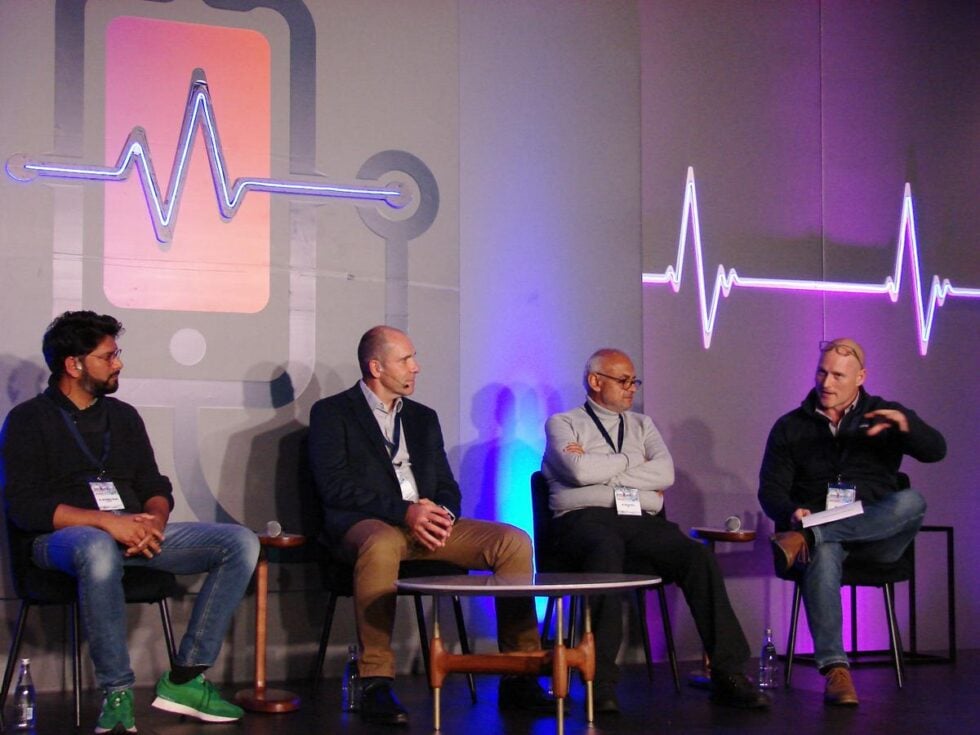
Panellists (from left) Dr Mohammed Dalwai (EMG), Luis da Silva (Healthbridge) Dr Rajesh Patel (BHF) and discussion moderator, Warren Hickinbotham (AxessHealth).
“Bottom line,” discussion moderator, AxessHealth Global CEO, Warren Hickinbotham stressed, “is you need a doctor’s hand at the wheel at all times!”
While it was accepted that there were already clearly defined benefits of AI use, such as accessibility to healthcare, Dr Rajesh Patel, head of the Board of Healthcare Funders (BHF) Systems Strengthening and a former practising GP and managed care executive himself, supported the “hands on” contention particularly in terms of the value of a patient’s body language in a one-on-one consultation.
In short, “AI knows what it knows but will never know my patient!”
Nonetheless, Machine Learning, it was agreed, was an important AI component which would ultimately benefit practising doctors in the long run, data analysis being the key element: As Dalwai explained: “There are quick wins with what Machine Learning (ML) can do in analysing data. In the future, this technology could offer many possibilities that we currently do not understand. We should utilize what is usable today and trust it. AI doesn’t threaten our existence.”
While AI will assist patients on deciding when to see a doctor, there was general agreement that it was still up to doctors to ask themselves at what point should they choose to “de-medicalise” some of their services in specific instances.
Commensurate with AI developments has been the exponential value of data collection and utilisation. As the panellists implied, the two go together, acknowledging the fact that health organizations have amassed vast datasets of, for example, health records and images, as well as population, claims, and clinical trial data.
On this point Patel emphasized that AI technologies were well-suited to analyse data and uncover patterns and insights that humans may not be able to find on their own: “With deep learning from AI, healthcare facilities can use algorithms to make better business and clinical decisions, ultimately improving the quality of the experiences they provide,” he added.
But, he warned in his concluding remarks, achieving effective data management across the board still represented the biggest challenge to healthcare in South Africa because of the current competitive and protective nature of data collection and storage.
These, Patel stressed, should become non-competitive and non-profit collaborative efforts for data to become freely available when and where possible for the benefit of all parties, particularly when it came to primary care.